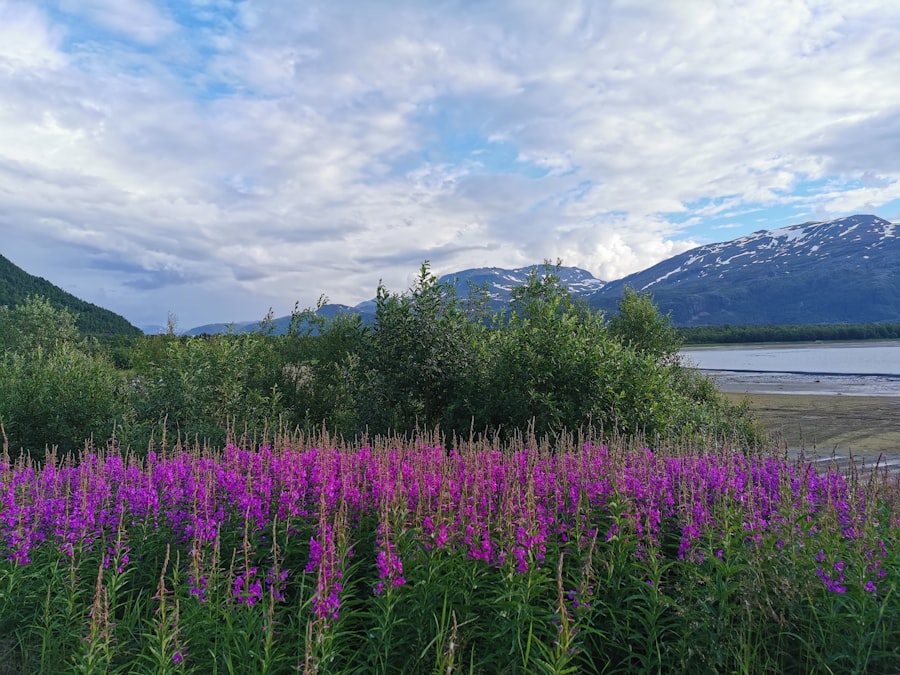Relocating to Norway is an exciting yet intricate journey that requires careful planning and consideration. The process begins with a thorough understanding of what it entails, from the initial decision to move to settling into your new life in this beautiful Scandinavian country. Norway is renowned for its stunning landscapes, high quality of life, and robust welfare system, making it an attractive destination for expatriates.
However, the transition can be daunting, especially for those unfamiliar with the cultural and bureaucratic nuances of the country. The first step in this process is to gather information about Norway’s lifestyle, culture, and social norms. This includes understanding the local customs, climate, and even the cost of living.
It is essential to prepare for the differences you may encounter, such as the Norwegian approach to work-life balance and social interactions. Engaging with online forums or expatriate communities can provide valuable insights and support as you navigate this significant life change. Book Your 1-Hour Relocation Strategy Session at https://norwayrelocation.no/one-hour-strategy-session/.
Summary
- Understanding the process of moving to Norway:
- Research the cost of living and job opportunities in different cities.
- Consider the climate and lifestyle in Norway before making the move.
- Researching and understanding Norwegian immigration laws and regulations:
- Familiarise yourself with the different types of residence permits available.
- Understand the requirements for family reunification if applicable.
- Obtaining the necessary visa and residence permit for Norway:
- Start the application process well in advance to avoid delays.
- Ensure all required documents are translated and certified if not in Norwegian.
- Finding suitable accommodation in Norway:
- Consider renting initially to get a feel for different neighbourhoods.
- Research the rental market and understand your rights as a tenant.
- Registering with the Norwegian authorities:
- Register with the National Population Register (Folkeregisteret) upon arrival.
- Obtain a Norwegian identification number (D-number or personal number) for official transactions.
Researching and Understanding Norwegian Immigration Laws and Regulations
Before embarking on your move, it is crucial to familiarise yourself with Norwegian immigration laws and regulations. Norway has specific requirements for individuals wishing to relocate, which can vary depending on your nationality and the purpose of your stay. For EU citizens, the process is generally more straightforward, but it is still essential to understand the legal framework governing residency and work permits.
Researching these laws can be a complex task, as they are subject to change and can differ based on individual circumstances. It is advisable to consult official government websites or seek guidance from immigration experts who can provide up-to-date information tailored to your situation. Understanding these regulations will not only help you avoid potential pitfalls but also ensure a smoother transition into your new life in Norway.
Obtaining the Necessary Visa and Residence Permit for Norway

Once you have a clear understanding of the immigration laws, the next step is to obtain the necessary visa and residence permit. For EU citizens, moving to Norway typically does not require a visa; however, you must register with the Norwegian authorities if you plan to stay longer than three months. This registration process involves submitting various documents, including proof of employment or sufficient financial means to support yourself during your stay.
For non-EU citizens, the process can be more complex, often requiring a specific visa based on employment, family reunification, or study. It is vital to gather all required documentation meticulously and submit your application well in advance of your intended move. The processing times can vary significantly, so being proactive will help ensure that you receive your residence permit in a timely manner.
Finding Suitable Accommodation in Norway
Finding suitable accommodation is one of the most critical aspects of relocating to Norway. The housing market can be competitive, particularly in major cities like Oslo and Bergen, where demand often outstrips supply. It is advisable to start your search early and consider various options, including renting or purchasing property.
Websites dedicated to real estate listings can provide a wealth of information about available properties and their respective costs. When searching for accommodation, it is essential to consider factors such as proximity to work or school, public transport links, and local amenities. Additionally, understanding the rental market’s norms—such as deposit requirements and lease agreements—will help you navigate this process more effectively.
Engaging with local real estate agents can also provide valuable insights into neighbourhoods that suit your lifestyle preferences.
Registering with the Norwegian Authorities
Upon arrival in Norway, registering with the local authorities is a crucial step that cannot be overlooked. This registration process typically involves obtaining a personal identification number (personnummer), which is essential for accessing various services in Norway, including healthcare and banking. You will need to visit your local tax office (Skatteetaten) to complete this registration.
The registration process may require documentation such as proof of residence, employment contracts, or proof of financial means. It is advisable to have these documents readily available to facilitate a smooth registration experience. Once registered, you will receive your personal identification number, which will serve as a key reference throughout your time in Norway.
Understanding the Norwegian Healthcare System and Registering for Healthcare

Norway boasts a comprehensive healthcare system that provides residents with access to high-quality medical services. As a new resident, understanding how this system works is essential for ensuring that you receive the care you need. The Norwegian healthcare system operates on a public funding model, meaning that most services are funded through taxes.
To access healthcare services, you must register with the National Registry and obtain a personal identification number. Once registered, you will be entitled to healthcare services under the National Insurance Scheme (Folketrygden). It is advisable to familiarise yourself with local healthcare providers and facilities in your area, as well as any specific procedures for accessing care.
Enrolling Children in the Norwegian Education System
If you are moving with children, understanding how to enrol them in the Norwegian education system is paramount. Norway offers free education for children aged 6 to 16 years, with a strong emphasis on inclusivity and equal opportunities for all students. The education system consists of primary school (barneskole), lower secondary school (ungdomsskole), and upper secondary school (videregående skole).
To enrol your children in school, you will need to contact your local municipality’s education department. They will provide information on available schools in your area and guide you through the enrolment process. It is also beneficial to learn about the curriculum and educational philosophy in Norway, which may differ from what you are accustomed to in your home country.
Opening a Bank Account and Managing Finances in Norway
Establishing a bank account is an essential step in managing your finances after moving to Norway. Having a local bank account will facilitate everyday transactions such as receiving your salary, paying bills, and making purchases. Most banks in Norway offer various account types tailored to different needs, so it is advisable to research options before making a decision.
To open a bank account, you will typically need to provide identification documents such as your passport and personal identification number. Some banks may also require proof of residence or employment. Once your account is set up, it is important to familiarise yourself with online banking services and any associated fees or charges that may apply.
Learning the Norwegian Language and Integrating into Norwegian Society
Learning the Norwegian language is an invaluable step towards integrating into society and enhancing your overall experience in Norway. While many Norwegians speak English fluently, mastering the local language will not only help you communicate more effectively but also deepen your understanding of Norwegian culture and traditions. There are numerous language courses available for newcomers, ranging from formal classes to informal conversation groups.
In addition to language learning, actively engaging with local communities can significantly enhance your integration process. Participating in social events, joining clubs or organisations related to your interests, and volunteering are excellent ways to meet new people and build connections within your new environment.
Understanding the Tax System in Norway and Fulfilling Tax Obligations
Navigating the tax system in Norway is an important aspect of living and working in the country. The Norwegian tax system operates on a progressive model where individuals are taxed based on their income level. As a resident, you will be required to file an annual tax return detailing your income and any applicable deductions.
It is crucial to understand your tax obligations early on to avoid any potential issues down the line. Consulting with tax professionals or utilising resources provided by the Norwegian Tax Administration can help clarify any uncertainties regarding tax rates, deductions, and filing procedures.
Accessing Support and Resources for EU Citizens in Norway
For EU citizens relocating to Norway, there are numerous support resources available to assist with the transition process. Various organisations offer guidance on immigration matters, housing options, employment opportunities, and cultural integration. Engaging with these resources can provide valuable insights and support as you navigate your new life.
One particularly beneficial resource is the One-Hour Strategy Session offered by the Norway Relocation Group. This session provides tailored advice based on individual circumstances and needs, helping newcomers understand their options and plan their relocation effectively. By taking advantage of this opportunity, you can gain clarity on various aspects of moving to Norway—from immigration laws to settling into your new community—ensuring that you embark on this exciting journey with confidence and preparedness.
In conclusion, moving to Norway involves several steps that require careful planning and consideration. By understanding the process thoroughly—from immigration laws to integrating into society—you can ensure a smoother transition into your new life in this beautiful country. Engaging with resources like the One-Hour Strategy Session from the Norway Relocation Group can further enhance your experience by providing personalised guidance tailored to your unique situation.
Embrace this opportunity for growth and adventure as you embark on this new chapter in Norway!

